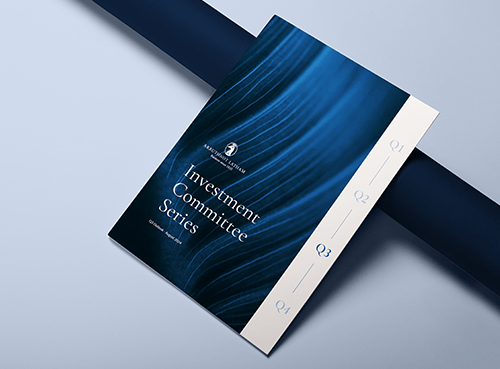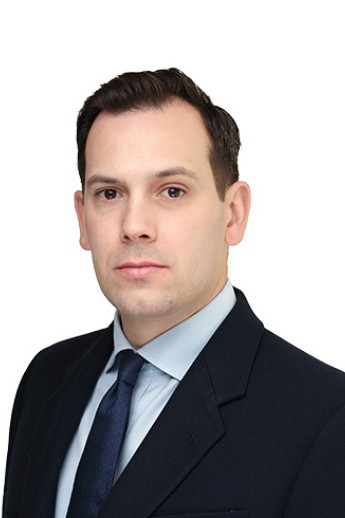Top of mind -
Opportunity cost: One of the greatest challenges of money management
Opportunity cost can be a confusing concept, but it plays a significant role in our daily lives.
Simply put, it refers to the value of the next best alternative that we give up when making a decision. This can be difficult because it forces us to think about what we give up when pursuing a particular course of action.
One example of an opportunity cost involves investing in the market versus repaying a mortgage. Both come with their advantages and disadvantages, and here we explore the options.
According to Rightmove, the current average mortgage rate for a fixed five-year 85% loan-to-value mortgage is 6.15%[1].
At the same time, banks are typically paying around 5.5% on a one-year fixed term deposit account.
When comparing this to making an investment, we encounter our first challenge: investment performance is backwards looking.
We can only see past performance and make broad estimates about the future. This unknown quantity is ‘risk’, for which investors expect to be paid a ‘premium’ – the return in excess of what you can receive ‘risk free’ from money in the bank (or, technically, on government debt) and your reward for taking that risk.
Since 2020, markets have been unstable because of Covid, inflation, higher interest rates, and the war in Ukraine. These same factors have increased the cost of debt and the return on cash deposits. As such, many investors are choosing safer investments to protect their money from global events, many of which are not yet resolved.
However, things are not as gloomy as they might appear.
At the start of 2023, your bank may have offered you around 4.0% to fix your deposit for one year. By the end of July 2023, you would have received around 2.3% in interest payments.
Over the same period, global stocks have increased by approximately 10.6% in GBP terms.[2] This is more than three times the return before taxes savers would have received on cash deposits.
A mixed investment portfolio with moderate risk, based on the Investment Association’s benchmark, would have achieved a 3.5% return.[3] This is a modest outperformance versus fixed cash, but, unlike a fixed term deposit, you are able to withdraw your invested assets if needed. Paying back debt, like a mortgage, is more complicated and depends on your personal situation when making a decision. Regardless of the long-term potential in investing, serious consideration should always be given to the cost of servicing your debt. Ultimately, it is down to you – what are your needs, your time horizon, your capacity for loss?
These can be difficult questions, but there is help available. A wealth planner can help you plan to reach your financial goals.
Our wealth planners take your circumstances, needs, and aspirations into consideration before creating a financial plan to suit your requirements. An investment manager can then create an investment portfolio that helps navigate volatile markets and achieve long-term positive performance.
Which option provides a better long-term opportunity; debt repayment, cash deposits, or investing?
If you would like to discuss your options further, please get in touch
Becoming a client
Take control of your finances today by completing our enquiry form. Alternatively, you can call us on the number below and one of our team will be more than happy to talk about your future.
Wealth Management
Your goals and ambitions are unique to you and we want to help you get there.
Investment Committee Series
Our Investment Committee share their key decisions and outlook for Q3 2023 here

[1] https://www.rightmove.co.uk/news/articles/property-news/current-uk-mortgage-rates
[2] MSCI World, YTD as at 1/8/23
[3] https://fundcentres.lgim.com/en/uk/institutional/fund-centre/Unit-Trust/Mixed-Investment-40-85- Fund/#Performance
Related services
Wealth Management • Investment Management • Financial Advisers
Author -

Mark Sandey
Associate Director, Investment Management
Mark joined Arbuthnot Latham in May 2019, having previously worked as an Investment Manager at Canaccord Genuity where he managed private and corporate clients. He is responsible a team of investment managers looking after client portfolios.
Mark has worked in the industry since 2015 and holds the Level 6 qualification Private Client Investment Advice & Management.
Prior to that he served in the British Army for 7 years and holds a degree in International Politics from Aberystwyth University.
Outside of work, Mark enjoys yoga (badly), reading political and military history, and charting the steady decline of his physical fitness.
DISCLAIMER
This communication should be considered a marketing communication. It has not been prepared in accordance with legal requirements designed to promote the independence of investment research. It is for information purposes only and does not constitute advice, a solicitation, recommendation or an offer to buy or sell any security or other investment or banking product or service. You should seek professional advice before making any investment decision. The value of investments, and the income from them can fall as well as rise, and may be affected by exchange rate fluctuations. Investors could get back less than they invest. Past performance is not a reliable indicator of future results. The tax treatment of investments depends upon individual circumstances and may be subject to change.
The contents of this communication are based on opinions or conditions as at the date of writing and may change without notice. To the extent permitted by law or regulation, no warranty of accuracy or completeness of this information is given and no liability is accepted for its use or reliance on it.